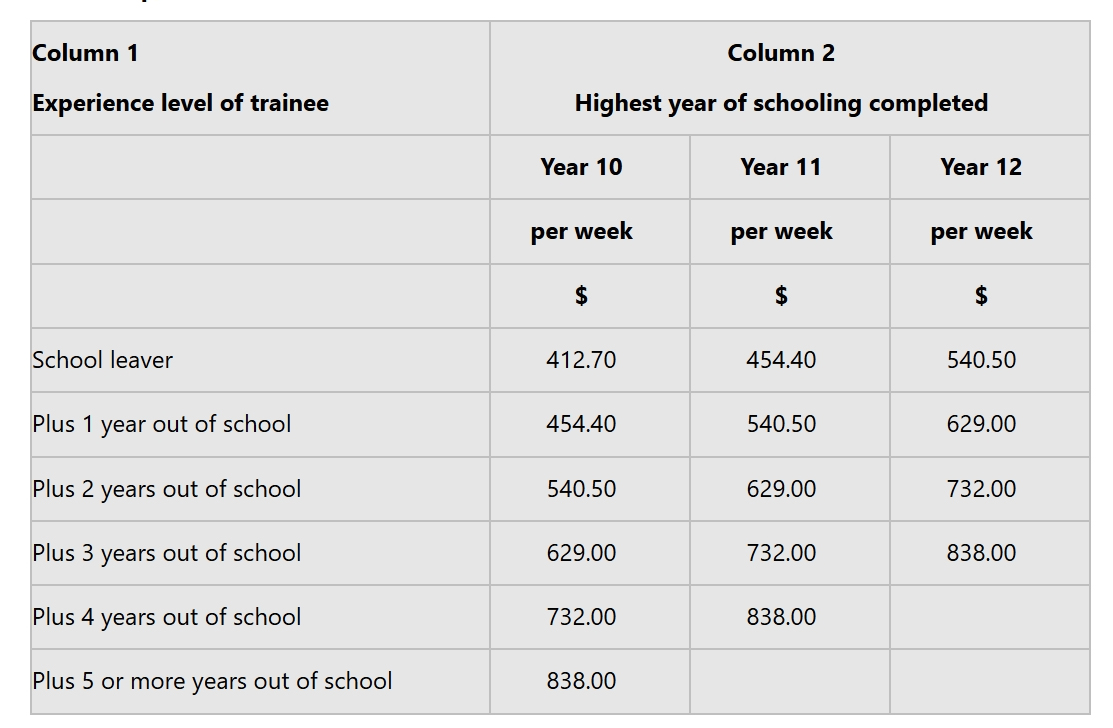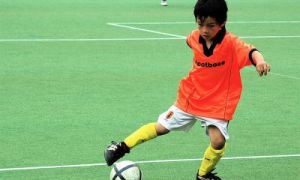Whether you are doing a Cert 3 or a Diploma traineeship or thinking about doing a traineeship it’s a good idea to understand what wages you will be receiving and the conditions of your traineeship. The following article provides information on What Is A Traineeship, The Traineeship Contract, Wages for a Trainee in Childcare, Employment Conditions for Trainees and more.
What is a Traineeship?
A traineeship is training that has been approved by the relevant State training authority and meets the requirements of a training package, developed by the relevant Industry Skills Council. When you have completed the traineeship you will receive an AQF certificate level qualification. Employed as a trainee, you undertake a traineeship under a training contract.
The Traineeship Contract
When employed as a trainee you are required to have a traineeship contract. The contract is an agreement signed by you and your employer and has details of your traineeship requirements. It also includes:
- the type of apprenticeship or traineeship that will be undertaken
- details the training obligations of the employer and trainee
- the start date for the training
- the duration of the training period
- the workplace or location where the apprentice or trainee will receive practical experience
- the TAFE or training provider which will provide the structured, off-the-job or workplace-based training
As a trainee, you will get the same benefits as other employees within the centre such as annual leave, sick leave, public holidays and breaks. These are accumulated as per your type of traineeship which could be either:
Full-time traineeship – based on 38 hours per week, with 20% of ordinary hours being approved training.
Part-time traineeship – based on less than 38 hours per week, with 20% of ordinary hours being approved training solely on the job or partly on the job and partly off the job or where training is fully off the job.
When working as a full-time trainee, it will typically take you a year to gain your qualification, while working as a part-time trainee, it will take longer.
Wages for a Trainee in Childcare
While working as a trainee in childcare, your wages fall under the National Training Wage, Miscellaneous Award. Your wages depend on the highest year of school completed. Here are the following minimum pay rates for full-time and part-time trainees (as of 01/07/2025).

Employers are obliged by law to keep records of times worked by you as a trainee (including attendance at off-the-job training) and your wages. They are also obliged to provide you with a payslip which includes details such as the period of employment to which the payment relates, hours worked (including overtime), gross pay, tax deducted, other deductions and net pay. Employers are required by law to have a copy of the relevant award or industrial agreement available in the workplace.
Employment Conditions for Trainees
While being employed as a trainee, you will need to have a basic understanding of your employment conditions and your entitlements which include:
- As a trainee, you are entitled to be released from work without loss of employment and with continued payment of your wages to attend any training and assessment specified in, or associated with, the training contract. It is to be regarded as time worked for your employer to calculate your wages and determine your employment conditions.
- While working as a trainee you must be provided with “hands-on” work and supervised training at work to acquire the knowledge and skills you need to complete the traineeship.
- You must be enrolled in an approved course of formal training with an RTO and must be allowed paid work time to undertake your formal training. This may involve attendance at a training institution, formal training in the workplace or self-paced learning.
- Employers must sign your competency record book or work evidence guide which supports formal training.
- Employers must liaise with the RTO regarding your attendance and your participation and progress in formal training.
- You must make all reasonable efforts to follow all lawful instructions of the employer, abide by the policies and procedures that apply in the workplace and demonstrate a commitment to the early childhood industry.
Tuition Fees Payable by a Trainee
In NSW, the government has advised that as a trainee you are required to pay an annual upfront tuition fee for each year of your traineeship program and have instructed Registered Training Organisations (RTOs) to collect the tuition fee. The fee differs depending on the RTO.
Some trainees will be exempt; including existing worker trainees, school-based trainees, Aboriginal and Torres Strait Islanders and those receiving an identified benefit.
Financial Assistance Available to Trainees
While working as a trainee, you may be eligible for Financial Assistance, be sure to check your state/territory for any assistance they may provide.
The NSW Government provides:
- Payments under the Vocational Training Assistance Scheme (VTAS) for trainees who need to travel more than 120km (round trip) to attend day or block release training with an RTO. Assistance is in the form of an accommodation payment per day and a travel payment per kilometre that applies to both public and private means of transport.
- Public transport concessions for travel on NSW Government buses, ferries and trains for new entrant trainees.
The Australian Government provides:
- Support for adult apprentices (25 or older) undertaking training in a skills shortage industry
a Living Away From Home Allowance (LAFHA) for first, second and third-year trainees and apprentices who need to live away from home for employment purposes - A Tools for Your Trade allowance for trainees in identified skill shortage areas
Support for low-paid workers, including trainees, through Youth Allowance, Austudy and ABSTUDY
Working as a Trainee
Working as a childcare trainee is not all fun and games. There is plenty of hard work involved. You will be working as either an assistant or a floater. An assistant means you basically assist the room leader in one of the rooms, as a floater you will “floating and assisting” different rooms when they need you throughout the day.
You will have to get used to staff telling you what to do, getting feedback and suggestions on what you need to improve and having to do a range of different duties around the centre. Now you have to understand that working in this industry and working with children that there is a lot that has to get done. As a trainee, you will feel you do more than your fair share but that's, in fact, part of the job. You are working as an “unqualified childcare worker”, you are still learning and your duties regarding the actual learning of the children at this stage are minimal. However, your room leader will provide you with plenty of opportunities to extend the skills you develop throughout your traineeship.
For more information, hints and tips in starting a traineeship in childcare, please read the following article: Starting A Traineeship In Childcare
References:
Fairwork Australia
Training NSW
National Training Wage, Miscellaneous Award







 Whether you are doing a Cert 3 or a Diploma traineeship or thinking about doing a traineeship it’s a good idea to understand what wages
Whether you are doing a Cert 3 or a Diploma traineeship or thinking about doing a traineeship it’s a good idea to understand what wages Work placement is an excellent opportunity for you to prepare and gain insight into the early childhood industry as well as help you to clarify
Work placement is an excellent opportunity for you to prepare and gain insight into the early childhood industry as well as help you to clarify Are you thinking of starting a traineeship in childcare? Well from personal experience, working in this child care industry brings great fulfilment and satisfaction. Watching
Are you thinking of starting a traineeship in childcare? Well from personal experience, working in this child care industry brings great fulfilment and satisfaction. Watching There is no truth to the rumour that the certificate III or 'actively working towards' will be phased out.
There is no truth to the rumour that the certificate III or 'actively working towards' will be phased out.
 For educators looking to update their qualification and have the required knowledge, experience and skills instead of completing assignments and tasks to complete a qualification
For educators looking to update their qualification and have the required knowledge, experience and skills instead of completing assignments and tasks to complete a qualification As a student finding information and doing research is an important part of completing assignments. Once you find the information you need to complete the
As a student finding information and doing research is an important part of completing assignments. Once you find the information you need to complete the Being a student and completing assessments can be a hard task. Especially when you don’t understand what the question is, you have to write an
Being a student and completing assessments can be a hard task. Especially when you don’t understand what the question is, you have to write an As you take the next big step and decide to continue studying you need to decide whether you will be able to manage working at
As you take the next big step and decide to continue studying you need to decide whether you will be able to manage working at Hiring overseas educators can not only bring a service the benefits of a diverse, multicultural workplace but also address staffing shortage issues. However before an
Hiring overseas educators can not only bring a service the benefits of a diverse, multicultural workplace but also address staffing shortage issues. However before an Making the decision to study is a big one. It can be stressful, thinking of how you're going to complete assignments or if you're going
Making the decision to study is a big one. It can be stressful, thinking of how you're going to complete assignments or if you're going


